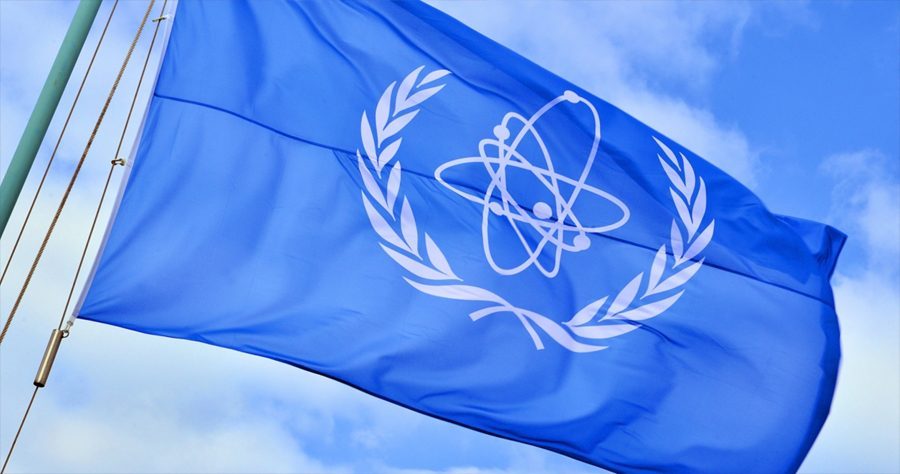Qatar is specifically keen on leveraging nuclear applications in critical areas such as food production, agriculture, human health, and environmental protection.
The International Atomic Energy Agency (IAEA) Director-General Rafael Grossi commended Qatar for its unwavering support and role in actively promoting the peaceful application of nuclear energy worldwide.
The comment came during a meeting between Grossi and Sultan bin Salmeen Al Mansouri, the Qatar’s Envoy and Permanent Representative to the United Nations and international organisations in Vienna, on the occasion of the conclusion of his tenure.
Grossi also expressed gratitude over Qatar’s generous contributions in funding various programmes and projects of the agency.
Particular appreciation was conveyed for Qatar’s financial support towards renovating the agency’s Seibersdorf Laboratories, located on the outskirts of Vienna, and for the Gulf state’s contributions to the agency’s technical cooperation programme.
Al Mansouri emphasised Doha’s unwavering commitment to fostering cooperation and backing the global nuclear agency’s upcoming plans.
The Gulf country has stood firm in its mission to thwart nuclear proliferation while actively supporting member states in harnessing the potential of nuclear technologies for their development, economic growth, and social progress.
Qatar is specifically keen on leveraging nuclear applications in critical areas such as food production, agriculture, human health, and environmental protection.
Qatar’s efforts in the IAEA
In December 2020, Qatar became a signatory to the IAEA’s convention on nuclear safety, after expressing its concerns over the development of nuclear energy power plants in the region.
In January 2021, the IAEA approved a series of projects in collaboration with Qatar for the years of 2022 and 2023, covering the field of nuclear research.
Represented by the Department of Radiation and Chemical Protection, Qatar’s Ministry of Environment and Climate Change said the planned projects covers areas of food safety and will be implemented with the cooperation of the Ministry of Public Health.
One such project is also assigned to oversee the establishment of a secondary calibration laboratory for radioactive devices – the largest of its kind in the Middle East – with the aim of improving radiation protection programmes in Qatar.
Doha has worked on various technical cooperation projects with the IAEA, covering regional, national scale, as well as worldwide level.
The projects cover a range of sectors including agriculture, medicine, human health in line with combating diseases, environment to curb pollution and climate change, and other departments responsible for tightening the grip over radiological activities and peaceful use of atomic energy.
Holding Israel to account
In 2021, Qatar called on Israel to join the Middle Eastern Treaty on the Non-Proliferation of Nuclear Weapons to contain the global proliferation of nuclear weapons and eliminate the threat of a “nuclear war” in the region.
At the time, Al Mansouri said Israel is the only state that refuses to join the treaty which aims to ‘free’ the Middle East of nuclear weapons as part of international resolutions to stabilise the area.
The Treaty on the Non-Proliferation of Nuclear Weapons (NPT) is the centrepiece of global efforts to inhibit the spread of nuclear weapons, including three elements, namely non-proliferation, disarmament, and peaceful use of nuclear energy.
Israel owns nuclear weapons. However, its refusal to join the treaty stipulates that it will not be subject to inspections nor does it risk being sanctioned by the UN’s IAEA.
The Qatari official said Doha has urged Tel Aviv to cooperate with the IAEA and open its nuclear facilities and atomic reactors to inspection.
Although the Israeli regime persists to reject claims of its development of nuclear weapons at its facility, or even disclose the amount it already possesses, former Dimona expert Mordechai Vanunu revealed pictures of its nuclear warheads to the media in the mid-1980s.
In 2003, it was estimated that “Israel” possessed between 100 to 200 nuclear warheads. Experts anticipate that the numbers have doubled by now. While the regime possesses a sizeable nuclear arsenal, however, it maintains a policy of nuclear ambiguity.
Israel is not a member of the NPT, which is essentially the most important global treaty on the world’s deadliest weapon.







